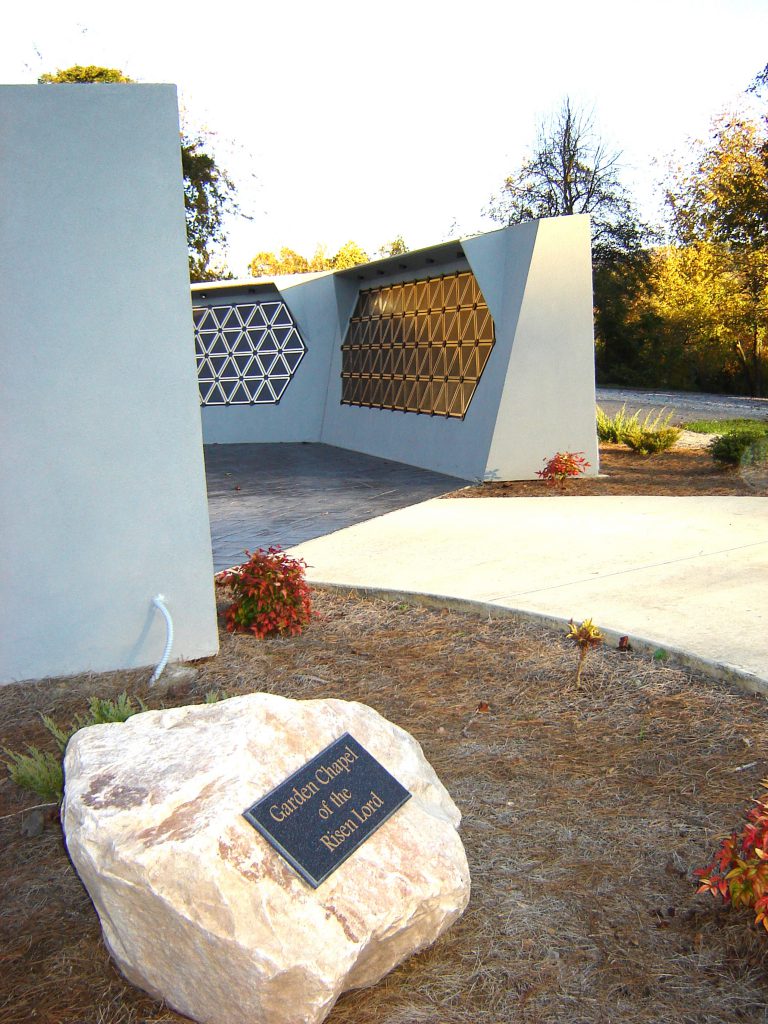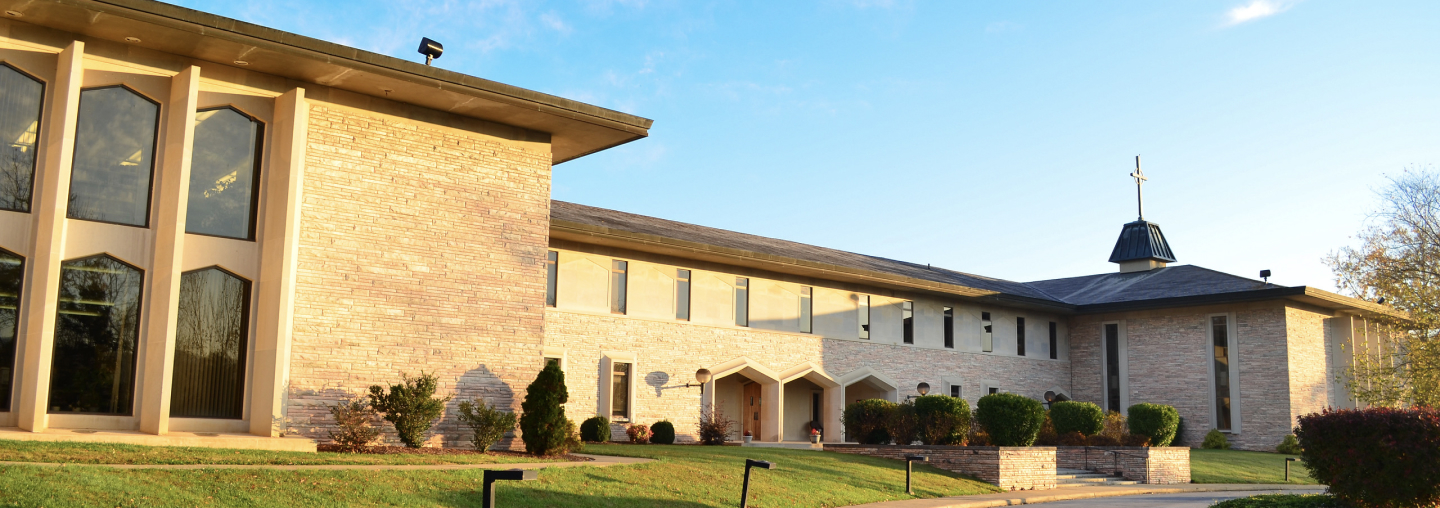The Tradition of a Columbarium Chapel

The Garden Chapel of the Risen Lord is an expression of Christian faith and love. It brings to all a message of assurance and of quiet peace, for it serves not only as a repository for remains of members of the Emmanuel and Milligan family, but also as a garden of beauty and quiet for meditation.
The Garden Chapel is an integral part of our beautiful school campus. With the mountains in the distance and the attractive plantings growing and flowering, one can meditate upon the great gifts of God as well as become aware of the communion of saints in the heritage of the Church.
It is an ancient custom to have a burial ground near a church. It was sometimes referred to as “God’s Acre” and considered sacred ground. In 2006, land was dedicated to continue this ancient tradition in Tennessee. Milligan’s Garden Chapel was originally established on the campus of Emmanuel Christian Seminary which is now a part of Milligan University.
The Garden Chapel and grounds are kept in excellent condition under a continuing care arrangement, with the supervision of the Garden Chapel Committee.
Use of the Garden Chapel
The Garden Chapel is designed for use by members of the Emmanuel and Milligan family, and others upon approval of the University administration. There are 616 inurnment spaces in the columbarium. Each may be used for one or two urns. Cast bronze plaques are provided to mark each space with names engraved of those to be commemorated. The Garden Chapel is open for public visitation when memorial services are not in progress.
About the Garden Chapel
The cost of each inurnment space is $4,000.
It includes a niche (space) that accommodates up to two urns, two standard urns for ashes, the transferring of ashes to the provided urn(s), the cost of opening and closing the niche, as well as engraving of the name(s) and dates of birth and death on the outside bronze plaque. It also provides for the care and upkeep of the Garden Chapel’s natural beauty.
Appropriate urns will be provided by Milligan. If other than the provided urn is desired, its use in the Garden Chapel must conform to the shape of the niche. Specially shaped urns can be ordered from local mortuaries but must be purchased by the owner of the niche
While pets are beloved members of the family, niches are for the use of human cremated remains.
In order to maintain the dignity and beauty of the Garden Chapel, all instruments of any kind on or around the areas designated for cremains will be under the strict control of Milligan. The University may remove any and all improvements or alterations at its discretion, at any time for any reason.
The Garden Chapel is intended to be used by members of the Emmanuel and Milligan family, which includes donors, alumni, students, board members, employees, and members of their immediate families. Use by other individuals is subject to approval by University administration. Milligan reserves the right to refuse to enter into agreement with any person(s) or groups for any reason.
No. Milligan receives the cremains from the responsible party. Cremains must be received 48 hours prior to any inurnment service.
The Garden Chapel is open at all times for the public, but visitation is restricted during special memorial services.
No. Milligan expressly states that it is not a mortuary or funeral establishment. The University, its employees, representatives, or agents make no representation that the institution provides mortuary services or any other service that requires licensing by the State of Tennessee or the State Board of Funeral Directors and Embalmers. Milligan does not provide mortuary services, nor are any of its employees, agents, or representatives subject to any such requirements, nor do they hold themselves to be funeral directors, embalmers, apprentices, assistants, or morticians, or any other title which might be construed as a type of regulated position.
Milligan does not guide friends toward one form of disposition of the body over another. The new life into which the Christian enters after death brings its own new form of existence. The earthly body, which has been the temple of the Spirit in this life, is laid aside. Its natural course is “earth to earth, ashes to ashes, dust to dust.” Earth burial, vault entombment, or cremation are all acceptable means of disposition.


